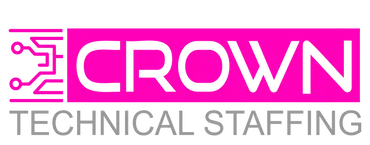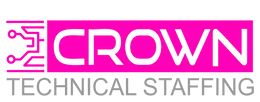The manufacturing sector is transforming, led by rapid technological progress, changing global markets, and new customer expectations. Alongside these changes, the abilities needed for effective leadership are evolving. To thrive in this shifting environment, future manufacturing leaders must blend technical know-how with sharp business insight and strong interpersonal and soft skills.
In our latest article, “Engineering 365,” we’ll explore the top 10 essential skills that manufacturing leaders, specifically those in “middle management,” must master. We’ll draw on the perspectives of top educational institutions and industry professionals and provide practical examples from well-known leaders.
We’ll take a page out of the NCAA “March Madness” lingo and call these the “Big Ten” skills:
Critical Thinking & Problem-Solving
Effective leadership begins with analyzing complex situations, identifying root causes, and developing practical solutions. This skill relies on cognitive intelligence, which enables analytical thinking and reasoning, and emotional intelligence, which allows leaders to remain objective and manage their emotions under pressure.
Consider Deborah Dunsire, CEO of Lantheus Medical Imaging. She faced significant challenges in streamlining operations amid the pandemic’s disruption. Leveraging critical thinking, she implemented new strategies to enhance production efficiency and address supply chain hurdles, ultimately helping the company achieve record growth in diagnostics.
Data Analysis & Digital Literacy
Understanding, interpreting, and leveraging data is essential in an increasingly data-driven world. This requires a blend of digital intelligence to grasp the technologies involved and cognitive intelligence to draw meaningful insights.
Jim McEleney, co-founder of Blue Origin, illustrates this by focusing on data analytics to improve manufacturing processes. By employing advanced data analysis tools to monitor rocket production, he was able to refine processes and enhance quality, ultimately supporting the company’s mission to make space travel more accessible.
Change Management & Agility
Change is the only constant in today’s manufacturing landscape. To navigate this successfully, leaders must possess high levels of emotional intelligence, particularly adaptability and resilience. Cultural intelligence is also crucial, enabling leaders to understand and embrace diverse perspectives.
Kathy Warden, CEO of Northrop Grumman, exemplified these skills when she led the company through a significant restructuring to enhance its focus on defense technologies. Despite facing external pressures and internal resistance, Warden’s ability to communicate a clear vision and manage change ensured a smooth transition while maintaining operational effectiveness.
Communication & Collaboration
Effective communication and collaboration are the bedrock of successful teams. Emotional intelligence, especially empathy and social skills, allows leaders to build strong relationships and foster a sense of unity. Cultural intelligence is equally essential, facilitating effective communication across diverse teams.
Mike McMahon, operations manager at Wrightway Global, a small machine manufacturing company, implemented collaboration tools to enhance communication between departments. His efforts to foster a culture of openness helped streamline workflows and improved team dynamics, leading to a more cohesive and productive workplace.
Leadership & Strategic Thinking
Great leaders can think strategically and motivate others. This requires a combination of cognitive intelligence for big-picture thinking and long-term planning and emotional intelligence for building trust and inspiring others.
Joan Perkins, director of operations at Lakeview Precision, a small machining company, successfully navigated market challenges by developing a strategic plan focused on expanding into niche markets. Her ability to recognize trends allowed the company to diversify its customer base and secure new contracts.
Creativity & Innovation
Creativity and innovation are critical differentiators in a rapidly changing industry. Cognitive intelligence, particularly divergent thinking and problem-framing, enables leaders to approach challenges from new angles. Emotional intelligence, especially openness to new ideas, is also essential.
Tanya Griffin, head of design at Stylus Manufacturing, a bespoke furniture maker, championed innovative design practices by incorporating modular concepts into the product line. Her creative vision helped the company gain recognition in the interior design industry, driving increased interest and sales.
Cybersecurity & Data Privacy
As manufacturing becomes more digitized, the risk of cyber threats increases. To mitigate these risks, leaders need a strong foundation in digital intelligence to understand the nature of the threats and business intelligence to assess the potential impact on the organization.
Evelyn Song, IT director at MicroTech Components, a small electronics manufacturer, prioritized cybersecurity measures after experiencing minor data breaches. She implemented security training and upgraded protocols, significantly reducing vulnerability and protecting sensitive client information.
Sustainability & Environmental Consciousness
Sustainability is no longer a nice-to-have, it’s an important business goal. To integrate sustainable practices, leaders need business intelligence to navigate environmental regulations and cultural intelligence to understand global sustainability challenges.
Tom Howard, founder of BioPlastic Innovations, a small manufacturing firm producing biodegradable packaging, focuses heavily on sustainability. By sourcing compostable materials and promoting sustainable practices, Howard has positioned his company as a leader in eco-friendly packaging within its market.
Project Management & Operational Excellence
Effective project management is crucial for delivering high-quality products on time and within budget. This requires a blend of business intelligence for resource allocation and project planning and cognitive intelligence for attention to detail and organization.
Anita Perez, project manager at CraftMakers Inc., a small artisan manufacturing firm, utilized agile project management techniques to enhance production efficiency. By implementing smaller, iterative project cycles, Perez was able to improve product quality while drastically reducing lead times.
Business Acumen & Financial Literacy
Manufacturing leaders must have a solid grasp of financial concepts to make informed business decisions. Business intelligence, including economic analysis and understanding market trends, is essential.
Martin Welch, CFO of Hyundai Motor Manufacturing, demonstrates strong financial acumen by adjusting resource allocations in response to market shifts. His ability to analyze economic trends and make data-driven decisions has been vital in maintaining profitability while adapting to changing consumer preferences.
How do you build and develop these skills?
We’ll outline several ways to move closer to the “Big Ten”:
Online courses offered by Coursera, Udemy, and LinkedIn Learning provide accessible and flexible learning opportunities. For example, Coursera specializes in “Industry 4.0: How to Revolutionize your Business,” which covers many of the skills discussed in this article.
Advanced degrees, such as executive education programs from Wharton, Harvard, and Insead, offer immersive experiences tailored for manufacturing leaders. These programs provide opportunities to learn from leading experts and network with peers facing similar challenges.
Industry events and conferences, such as the Manufacturing Leadership Summit and the Industry 5.0 Conference, provide opportunities to stay abreast of the latest trends and best practices and offer valuable networking opportunities.
Mentorship and coaching can provide personalized guidance from experienced leaders who have navigated similar challenges. Many organizations have formal mentorship programs, but leaders can also seek informal mentorship relationships.
Self-directed learning through industry publications, podcasts, and online certifications allows continuous growth. For example, the National Association of Manufacturers (NAM) offers a variety of resources and certifications for manufacturing professionals.
Many companies offer On-the-job training to help leaders develop practical skills in real-world contexts. These opportunities can range from stretching assignments to job rotations. Challenges and Strategies:
While these growth opportunities are valuable, leaders may face challenges in their skill development journey. Time constraints, competing priorities, and organizational resistance to change can all pose obstacles.
Embark on your skill development journey today, especially if you’re a manufacturing leader aiming to enhance your career resilience. Here are some actionable steps to get started:
- Evaluate Your Current Skill Set: Compare your existing skills with the 10 essential skills highlighted in this article.
- Recognize Your Strengths and Weaknesses: Identify what you excel at and where there’s room for growth.
- Select a Skill to Develop: Pick one skill to prioritize as your first step in this journey.
- Explore Learning Options: Look for viable resources such as online courses, industry conferences, or mentorships that align with your selected skill.
- Set Clear, Achievable Goals: Establish a specific objective for mastering this skill and outline a pathway to reach it.
- Document Your Progress: Share your experiences with your team and professional network. You might inspire others or uncover unexpected insights in the process.
Remember, every journey begins with a single step. The best time to act is now!
And in case you’ve forgotten – we’re rooting for you!
Did you enjoy reading this post? Please consider clicking the “Like” button and sharing it on LinkedIn, Facebook & Twitter!


